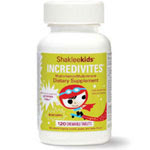But, if you notice from my posted recipes, I also use butter in moderation. Why would I use butter?
Butter has been falsely accused as a lethal saturated fat. Let's take a closer look. Is it the same as the saturated fats found in meat products? There is a big difference between the short chain fatty acids found in butter and the longer chained fatty acids found in the layers of fat surrounding red meat. The short chain fatty acids found in butter are metabolized and used for energy similar to a carbohydrate. The longer chained fatty acids from feedlot meats are unused and stored away, leading to plaque buildup in the arteries.
For a very interesting look at 20 Health Benefits of Butter, take a look at this site. If you have previously thought butter was a villain, you might want to go through all the documented sources on this page... very thought-provoking reading.
But what about margarine? A study conducted in 1995 at Harvard Medical School showed that heart patients who consumed margarine were twice as likely to have a heart attack than those who consumed butter. Hmmm... why is this study so unheard of? Margarine has been shown to cause arterial disease and it has also been implicated as a carcinogen. While margarine may look a lot like butter, don't be fooled. The restructuring of vegetables oils (hydrogenation) forms a toxin, not a food. Our bodies may deal with it as best they can -- we have amazing defense mechanisms -- but the toxic effect leaves its scar over time.
While I avoid ALL hydrogenated oils, I also avoid polyunsaturated vegetable oils (canola, corn, soybean) because they must be highly processed in order to be marketable. This processing leaves the oils unstable and rancid, unsuitable for consumption. I think it is best to stick to cold pressed olive oil, short chain fats (like butter) in moderation, and fats found in natural foods such as avocados and nuts.
So, again, on this "healthy fats" topic, I have only scratched the surface. Here are a few further research recommendations:

Fats that Heal, Fats that Kill

Know Your Fats : The Complete Primer for Understanding the Nutrition of Fats, Oils and Cholesterol









































6 comments:
I was just thinking earlier how it is in our culture that there are so many things that LOOK like food, & fill the tummy but are NOT food. They have no nutrients for the body to use. They are simply stored or eliminated. Margarine is definitely a non-food that looks like food.
Thanks for the thoughts! I recently told my husband no more margarine: I've known for a while it's bad, but I knew he would like the transition much. He protested, but I stick with it. :) Now the switch to olive oil from veg oil (which is cheaper)... one step at a time!
we began using only EVOO a few years ago. I love the taste it brings to food. We had still been using vegetable oil until just recently when I found a George Foreman grill at a thrift store. Now we grill foods that we would have fried. I think it tastes better :)
I switched from margarine to butter last year and it's such a plus that it also tastes better too!
I have enjoyed reading your blog tonight. Hope you will visit me...The posts from our most recent "grandparent Disney trip" are beginning, with a look into the eyes of my little guys from this "Grammy"! Also every comment counts as an entry for the May giveaway. (See Monthly Card Box Giveaway"!
I mostly use extra virgin olive oil as well. I agree with you that margarine is not the best thing for you. I try to stay away from highly processed foods. You can't trust them and our bodies were not designed to handle them. Foods in their natural state are much better. I enjoyed reading this informative article!
Post a Comment